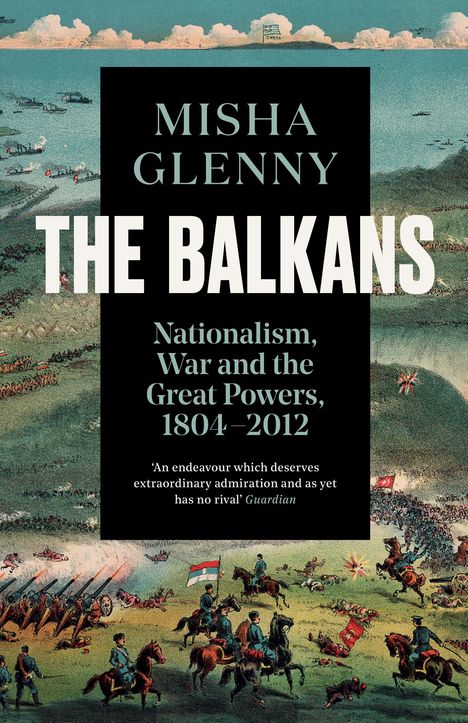Misha Glenny: The Balkans, 1804-2012, Kartoniert / Broschiert
The Balkans, 1804-2012
- Nationalism, War and the Great Powers
- Verlag:
- Granta Books, 12/2017
- Einband:
- Kartoniert / Broschiert
- Sprache:
- Englisch
- ISBN-13:
- 9781783784523
- Artikelnummer:
- 11909822
- Umfang:
- 800 Seiten
- Gewicht:
- 815 g
- Maße:
- 218 x 146 mm
- Stärke:
- 55 mm
- Erscheinungstermin:
- 7.12.2017
- Hinweis
-
Achtung: Artikel ist nicht in deutscher Sprache!
Klappentext
'A great achievement' Timothy Garton Ash
Bloodshed. Invasions. Nationalist fervor. In this classic and celebrated history of the Balkans, Misha Glenny shows how the countries on the South-Eastern edge of Europe are seen by the rest of the world, and how the real story of the last 200 years is much more surprising. There are groups we think of as implacable enemies, who have, over the centuries, formed unlikely alliances, disrupting the idea that conflict in the Balkans is the inevitable product of ancient grudges. And there is the often-catastrophic relationship between the Balkans and the rest of Europe, a dark history that raises profound questions about Western intervention.
From the region's turbulent nineteenth century to the recent brutal conflicts in Kosovo and Macedonia, the surge of organised crime, the rise of Turkey and the rocky road to EU membership, The Balkans remains the essential and peerless study of Europe's most complex and least understood region.
'An endeavour which deserves extraordinary admiration and as yet has no rival' Guardian
'Glenny is the wisest and most reflective of all the Western journalists who have covered this part of Europe in the past two decades... This was an enormously ambitious book to undertake, but it is the book which Europe and America need' Observer
Biografie
Misha Glenny, geboren 1958, ist ein britischer Journalist und Spezialist für Mittel- und Südosteuropa sowie für das internationale organisierte Verbrechen. Er arbeitete zunächst für den Guardian , später dann für die BBC, wo er sich zur Zeit der Jugoslawienkrise als Balkan-Korrespondent einen Namen machte. Er erhielt zahlreiche Auszeichnungen und wird regelmäßig von europäischen Regierungen zu Rate gezogen.

